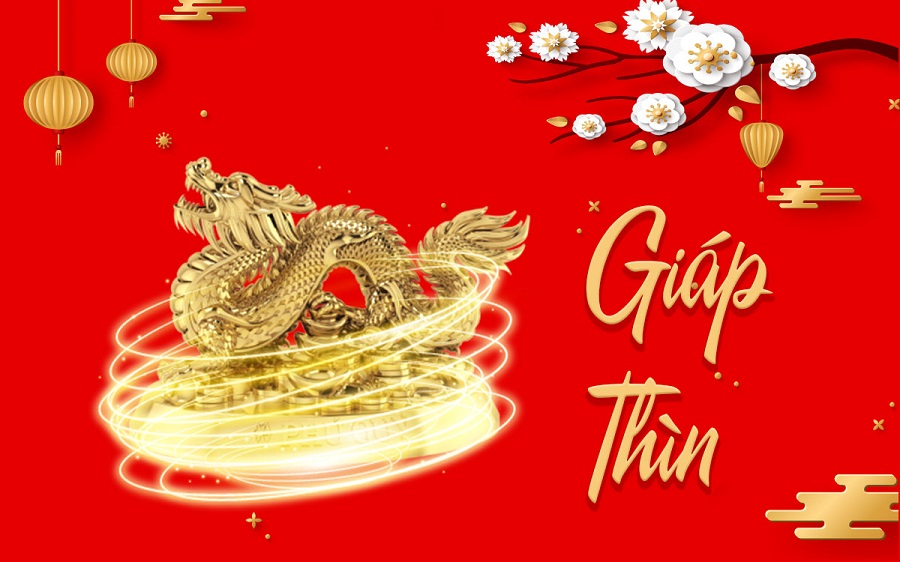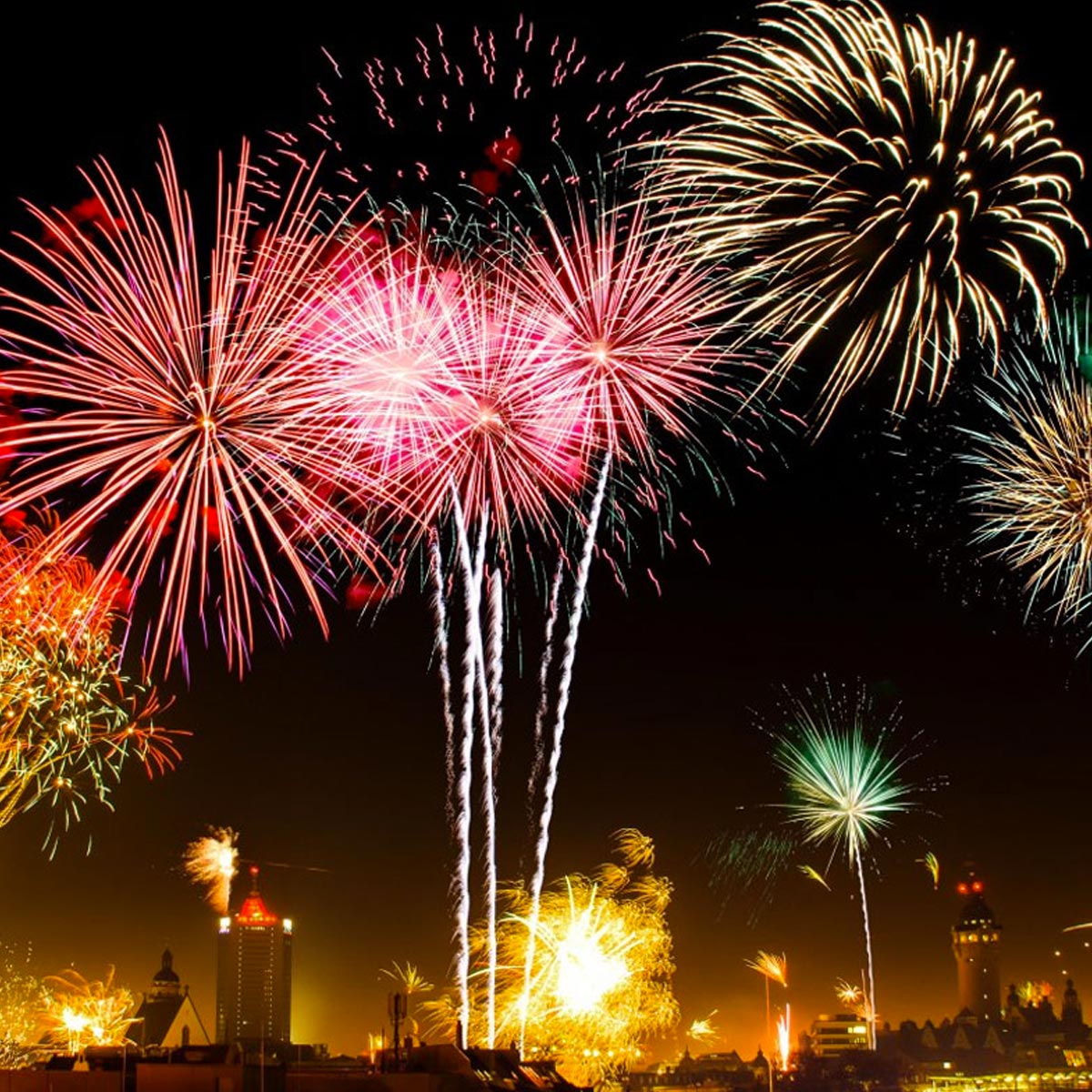All about Vietnamese new year – Tet Nguyen Dan 2024
As the lunar calendar approaches the dawn of a new year, Vietnam eagerly prepares to usher in Tet Nguyen Dan, the vibrant and culturally rich Vietnamese New Year. In the year 2024, Tet promises to be a tapestry of tradition, family reunions, and festive celebrations. Join us on a journey to explore all aspects of Tet Nguyen Dan 2024, from the symbolic rituals on Tet Eve to the joyful reunions with family and friends during the following days.

WHAT AND WHEN IS VIETNAMESE NEW YEAR 2024?
Vietnamese New Year, called Tet, is a very special celebration in Vietnam. It doesn’t have a fixed date like our New Year; instead, it changes each year, usually happening in late January or sometime in February.
Tet lasts for about a week, starting from the last day of the old year to the first three days of the new year. It’s a time when families come together, clean and decorate their homes, and cook special foods. People also visit friends and family, give and receive lucky money, and wish each other well for the upcoming year.
According to the lunar calendar, the 30th day of Tet in 2024 will fall on a Friday, February 9, 2024, and the 1st day of the Lunar New Year, the Year of the Dragon (Giáp Thìn), will be on Saturday, February 10, 2024. In the Year of the Dragon, Giáp Thìn, it will begin on February 10, 2024, and end on January 28, 2025, in the Gregorian calendar.

Tet is all about starting fresh, and it’s a happy time filled with traditions and celebrations.
THE STORY BEHIND THE CELEBRATION OF VIETNAMESE NEW YEAR
Tet Nguyen Dan, or Tet, is the biggest celebration in Vietnam. The story behind Tet is a mix of legends and historical traditions.
Family Reunion Legend behind Vietnamese New Year Celebration:
- Long ago, a mom in Vietnam had 100 kids. Half went with their dad to the sea, and the other half stayed in the mountains with their mom. Tet is like a party to remember when these brothers and sisters reunited.

Farmers and New Year:
- Tet also connects to farming and the lunar calendar. It says bye to winter and hello to spring, getting ready for a new year of planting crops.
Respecting Ancestors – Vietnamese New Year:
- During Tet, families visit where their ancestors are buried. They clean and decorate the graves to show love and thanks to their family from the past.
Kitchen God Tradition:
- Before Tet, families do a special thing for the Kitchen God, who watches over them. They give him gifts to make sure he tells the gods in heaven good things about the family.
Fresh Start with a Vietnamese New Year:
- Tet is like hitting the refresh button. People clean their houses super well, pay off debts, and fix any problems to start the new year with good luck.
Fun Celebrations:
- Tet is not just serious stuff. People have lots of fun, making special foods, doing dances with dragons and lions, and lighting up the sky with fireworks. It’s a big party that brings joy to everyone.
Tet is a time for family, happiness, and hopes for a great year ahead. It’s a big deal in Vietnam, and everyone comes together to celebrate.
Understanding the meanings of each day
Each day during Tet Nguyen Dan (Vietnamese New Year) holds special significance, and there are traditional meanings associated with them:
Tet Eve (Giao Thua) in Vietnamese New Year:
- Meaning: The transition from the old year to the new year. Families welcome the new year with a fresh start, symbolized by cleaning, decorating, and the Kitchen God ritual.
Tet Day 1 (Mung 1):
- Meaning: The first day of the new year signifies the beginning of prosperity and good fortune. Wearing new clothes and visiting close family members and friends symbolize starting the year on a positive note.
Tet Day 2 (Mung 2):
- Meaning: The second day is often associated with in-laws. Visits continue, and families pay respects to ancestors. It’s a time to strengthen family bonds and connections.
Tet Day 3 (Mung 3):
- Meaning: The third day extends visits to friends and more distant relatives. It’s a day for socializing, exchanging good wishes, and enjoying cultural activities. Families also continue to honor ancestors by tending to their graves.
Tet Day 4 and 5 (Mung 4, Mung 5) during Vietnamese New Year:
- Meaning: The fourth and fifth days are for relaxation and recreation. Families engage in leisure activities, outings, and cultural events. It’s a time to enjoy the festivities and appreciate the start of the new year.
Activities on each day
Tet Eve (Giao Thua):
- Decorating and Cleaning:
- Families clean and decorate their homes to welcome the new year. It’s about making everything fresh and vibrant.
- Kitchen God Ritual:
- Before midnight, families perform the Kitchen God ritual. They offer prayers and burn offerings to send the Kitchen God back to heaven.
- Midnight Celebrations:
- When the clock strikes midnight, fireworks light up the sky, marking the beginning of Tet. Families gather for a midnight meal and celebrate together.

Tet Day 1 (Mung 1):
- Wearing New Clothes:
- People wear new clothes to start the year fresh and bring good luck.
- Visiting Family and Friends:
- The first day is for visiting close family members and friends to exchange greetings and well-wishes.
- Lucky Money:
- Elders give lucky money (li xi) to children and unmarried adults in red envelopes for good luck.
Tet Day 2 (Mung 2):

- More Visits:
- Visits continue, and people may go to their in-laws’ houses. It’s a time of extended family gatherings.
- Respecting Ancestors:
- Families visit the graves of their ancestors to clean and decorate them, showing respect and remembrance.
Tet Day 3 (Mung 3):
- Friends and Distant Relatives:
- Visits now extend to friends and more distant relatives. People exchange well-wishes for a prosperous year.
- Leisure and Relaxation:
- It’s a day for relaxation, enjoying traditional games, and spending time with loved ones.
Tet Day 4 and 5 (Mung 4, Mung 5):
- Recreational Activities:
- These days are for leisure activities, including outings, picnics, and entertainment. People may attend festivals or cultural events.
- Work and Business:
- Some businesses may resume operations, and people start to return to work after the extended holiday.
- Continued Celebrations:
- Celebrations continue, and families spend quality time together, enjoying the festive atmosphere.
Throughout the 5 days of Tet, the emphasis is on family, tradition, and creating positive beginnings for the new year. The activities involve sharing joy, showing respect to ancestors, and fostering connections with loved ones.
